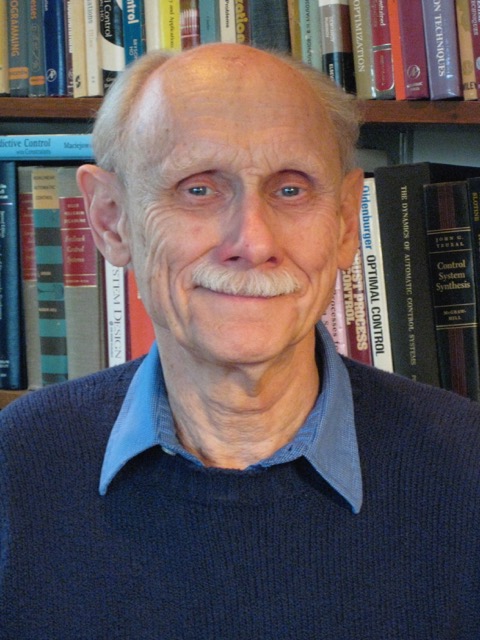Control Seminar
Reminiscences on My Career in Control
Add to Google Calendar

In the last few years I have been encouraged by colleagues to make some remarks on my career in the field of control systems. This seminar is my response. Emphasis is on the years 1957 to 1977, an exciting period in which both engineering practice and underlying research underwent great change. In particular, there was a major increase in the use of mathematical theory and computational tools. While my remarks center on specific activities that involved me, they may also give historical perspectives on what happened in the general field of control. Subjects covered include: early development and application of analog computers. Applied Dynamics International, canonical structure of linear system and how my contributions differ from those of Kalman, algorithms for solving problems in optimal control and how they led to (very) fast procedures for computing the distance between objects in 3-space, optimal periodic control, stability of model predictive control, some favorite contributions, thoughts on doing research.
Elmer G. Gilbert received B.S.E. and M.S.E. degrees in Electrical Engineering in 1952 and 1953, respectively, and the degree of Ph.D. in Instrumentation Engineering in 1957, all from the University of Michigan. Since 1957 has held professorial positions in the Departments of Aerospace Engineering and Electrical Engineering at the University of Michigan and in 1994 became Professor Emeritus. His interests include systems theory, optimal control, nonlinear systems, robotics, and control systems with hard constraints. He has published numerous papers and holds eight patents. He received the IEEE Control Systems Field Award in 1994 and the Bellman Control Heritage Award of the American Automatic Control Council in 1996. He is a member of the Johns Hopkins Society of Scholars, a Fellow of the American Association for the Advancement of Science, a Fellow of the Institute of Electrical and Electronics Engineers and a Member of the National Academy of Engineering (USA).
 MENU
MENU 
